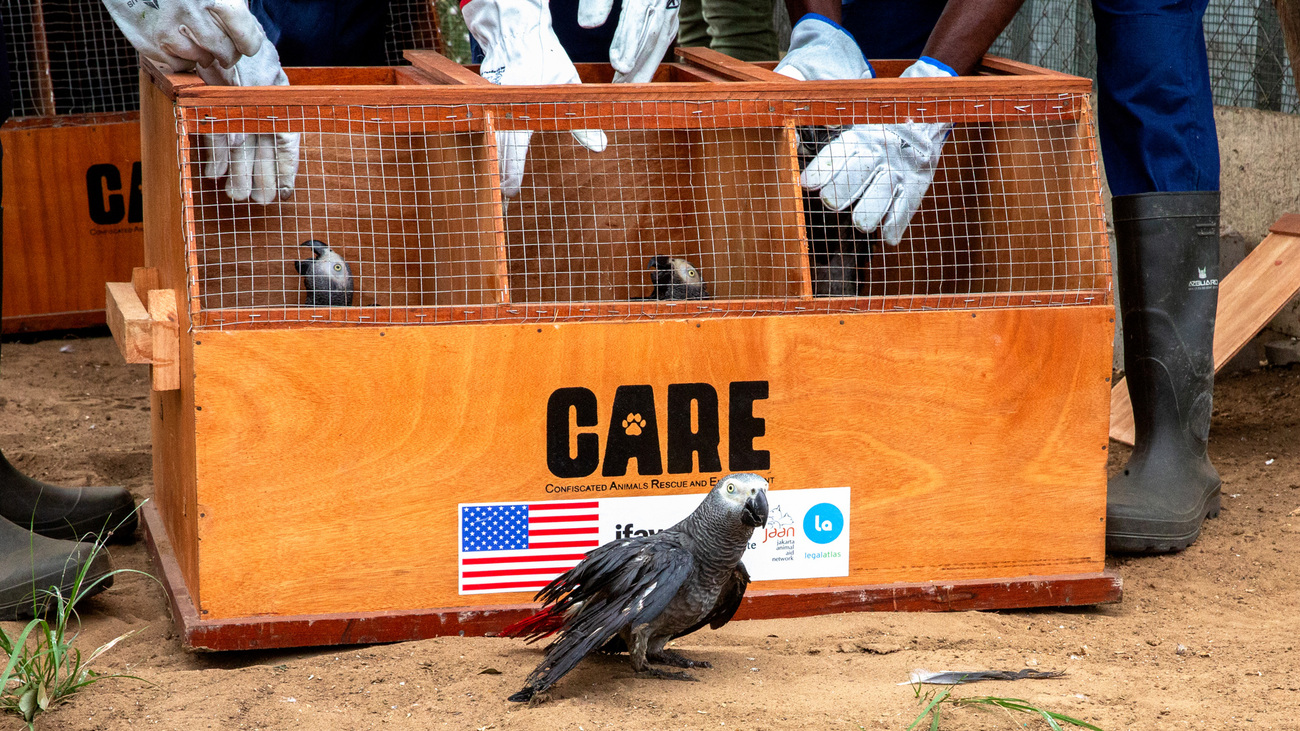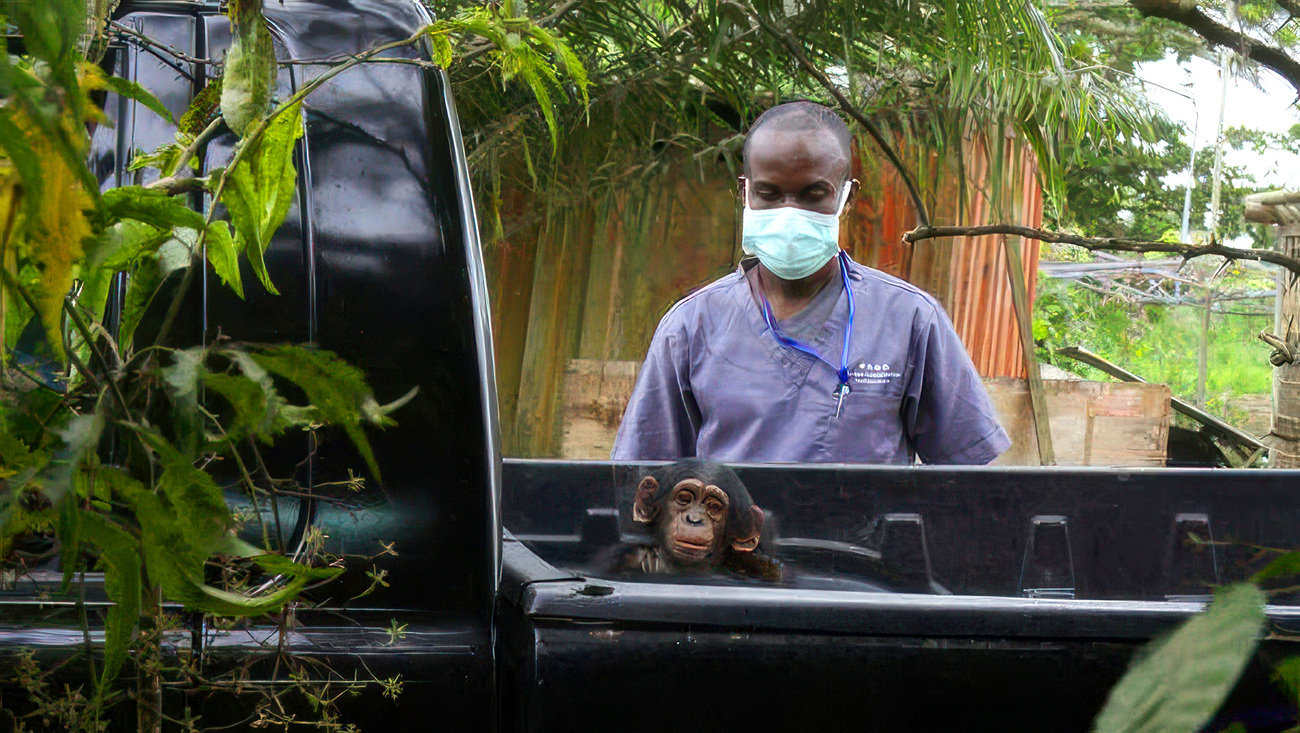Danielle Kessler
What a halt of US conservation funding means for national security and the illegal wildlife trade
What a halt of US conservation funding means for national security and the illegal wildlife trade
In January 2025, the US government abruptly paused all foreign assistance funding, putting critical conservation efforts on indefinite hold. While some projects were later allowed to continue, and legal action on others is underway, the impacts are already being felt—not just around the world, but right here at home.
Can you chip in to help keep our critical work going?
Donate to help protect wildlife and conserve our planet

Among the affected efforts are two programs led by IFAW: CARE (Confiscated Animals—Rescue and Enforcement) and our Neotropical Songbirds initiative. These programs, along with similar others led by partners and colleagues around the globe, aim to disrupt the illegal wildlife trade that fuels a multibillion-dollar criminal industry tied to transnational organized crime. These are not just conservation issues—they are national and international security concerns.
Wildlife crime isn't a distant threat—it's a domestic one
The illegal wildlife trade doesn’t only happen abroad. In fact, the US is one of the world’s largest consumer markets for wildlife and wildlife products, including illegally obtained ones. Wildlife traffickers exploit legal loopholes and online marketplaces, enabling illegal trade to flourish in plain sight—often undetected and under-prosecuted.
IFAW’s CARE project was designed to counter this, with a focus on illegal trade in live wild animals. Funded by the US State Department, CARE works across borders to reduce wildlife trafficking, strengthen law enforcement, and improve the care of animals rescued from the illegal trade. Live animals are often illegally taken from the wild and transported in cruel and inhumane conditions, creating the ideal environment for the spread of diseases that can pose a risk to other animals, agriculture, and people.
Songbirds are disappearing—and with them, ecosystem stability
Our Neotropical Songbirds project highlights another urgent front in the fight to protect animals from illegal trade and overexploitation. To meet high demand, excessive trapping of songbirds, known for their captivating melodies, is driving population declines across the Western Hemisphere.
Species like the indigo bunting, painted bunting, and yellow warbler are being taken from the wild, in part to feed a black-market trade into the US, often sold through informal networks or online platforms.
Birds smuggled into the US—often overcrowded inside small objects like gift boxes, hidden from the sun to keep them from singing—circumvent quarantine procedures and are highly susceptible to carrying and spreading diseases that pose an extraordinary threat to both our native birds and the agricultural industry. In their native habitats, these birds also play a vital role in maintaining healthy ecosystems—pollinating plants, dispersing seeds, and controlling insect populations. Their disappearance affects entire food webs and, by extension, human well-being. Without proactive investment to understand entire trade chains—from the source to the destination—and the motivators behind buying wildlife and wildlife products, illicit trade will be pushed further underground, allowing criminal networks to profit and thrive, while species continue to vanish.
Conservation is security—and it’s in our national interest
What happens when the world’s largest historical donor to conservation suddenly walks away? We’re just starting to see the answer: poachers take more risks, traffickers exploit weakened enforcement systems, and animals once protected become easy targets. Projects like CARE and our songbird initiative don’t just protect animals—they strengthen laws, support communities, and create stability across borders.

It’s often said that nature knows no borders. That’s especially true when it comes to wildlife trafficking and biodiversity loss. Whether we’re talking about endangered elephants in Africa, parrots in Peru, or songbirds in the southern US, the consequences of inaction are shared—and the responsibility must be too.
Thanks to donors like you, we’re so close to covering the funding we lost.
If projects like CARE and Neotropical Songbirds are discontinued, we would not only roll back years of progress in wildlife protection—we would also create space for organized crime to thrive. Wildlife trafficking networks are often linked to arms, narcotics, and human trafficking, making them a clear and persistent threat to international and US national security. When the US pulls out of global enforcement efforts, it opens the door for criminal operations to expand.
Now more than ever, we need to reaffirm our commitment to stopping illegal wildlife trade. Not just because it’s the right thing to do for animals and ecosystems, but because it protects our communities, upholds the rule of law, and safeguards our shared future.
🚨 If you can make even a small gift today it will go far.
Related content
Our work can’t get done without you. Please give what you can to help animals thrive.